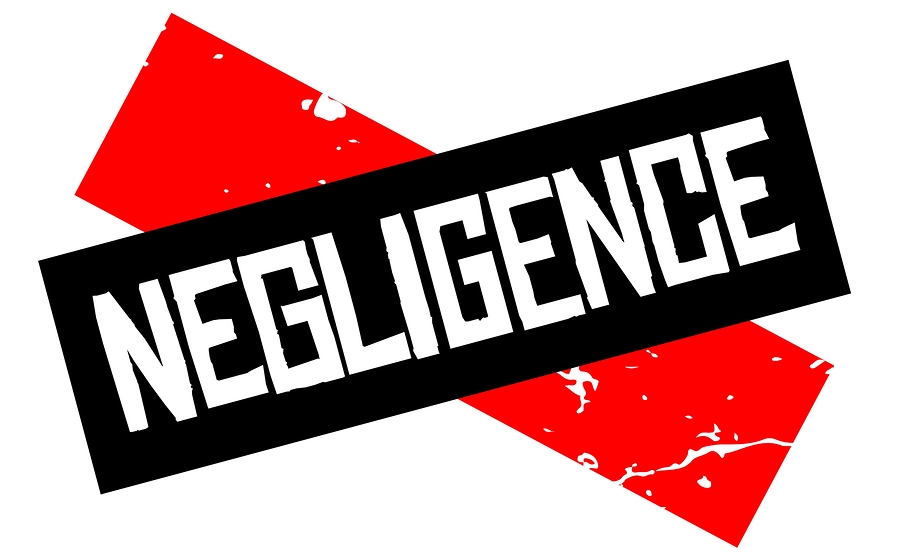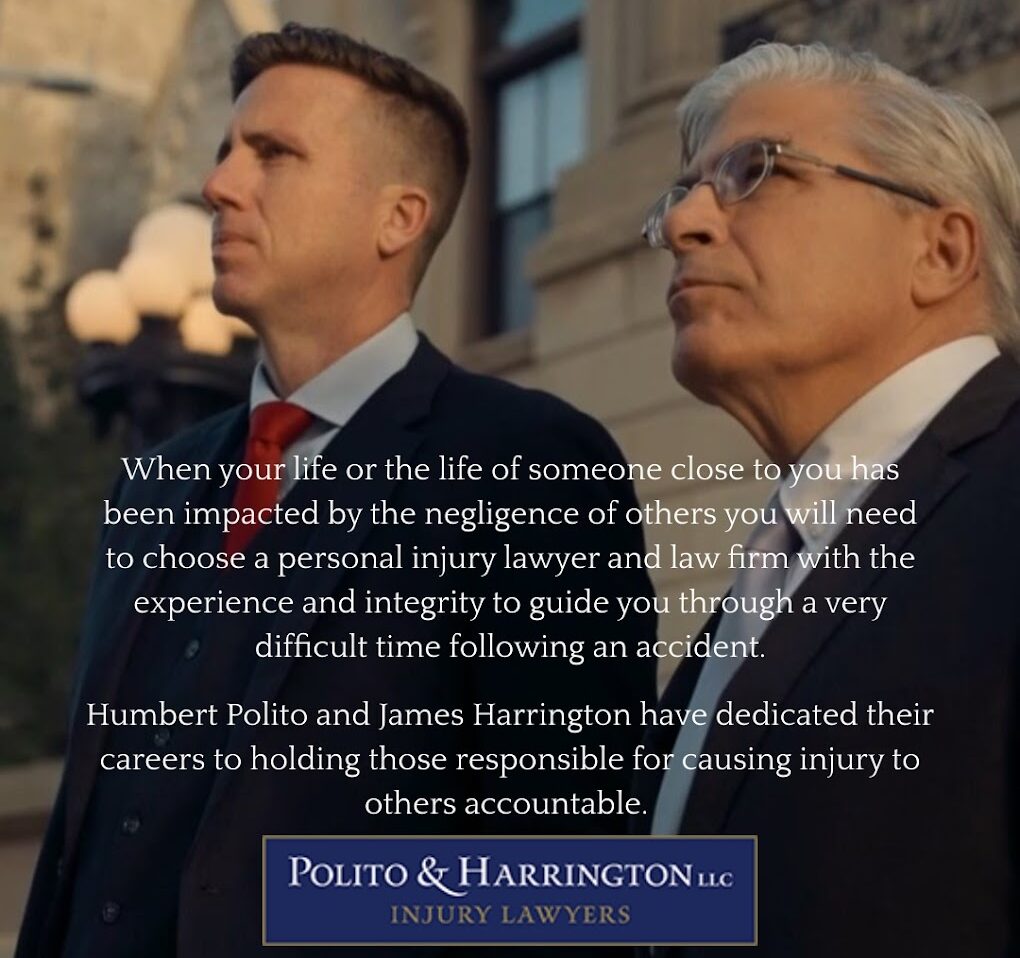
Under Connecticut Law, people who are hurt by the legal negligence of others may recover compensation for their injuries.
A negligence claim requires that the person bringing the claim (the plaintiff) establish four distinct elements: duty of care, breach, causation, and damages.
This article will describe these elements in more detail. If you have questions about whether you may be able to bring a claim, you should call our office today to schedule a free consultation with a personal injury lawyer.
For a FREE case evaluation with an injury attorney, call our office today at (860) 447-3300 OR Click Here.
The first element that a plaintiff needs to establish is that the defendant owed him or her a duty of care.
Typically, this means that the defendant owed the plaintiff a duty of reasonable care to not harm them, but states can modify this standard of care by statute for particular relationships (for example, a doctor-patient relationship).
Normally, a person owes another a duty of reasonable care if he or she can reasonably foresee that his or her actions could harm others.
For example, a driver owes everyone else on the road a duty of care to not text and drive, and a shopkeeper owes his or her customers a duty of care to place a Wet Floor sign over a spill. Duty of care is very rarely contested in personal injury cases.
If the plaintiff can establish that the defendant owed him or her a duty of care, the next issue to address is whether the defendant breached that duty.
A breach occurs when a person fails to act with the degree of care that a reasonable person in the same or similar circumstances would ordinarily exercise.
For example, a reasonable person would not speed or drive drunk. As a result, a driver who did either would have breached his or her duty of care to others.
Next, the plaintiff must establish that the defendant’s breach caused his or her injury. That is, but for the defendant’s actions, the injury would not have occurred.
In addition, the breach must serve as the proximate cause of the injury, which is to say that the law recognizes the breach as sufficiently related to the injury to assign legal culpability to the defendant.
Finally, the plaintiff must establish damages. Without damages, lawyers and judges refer to negligence as “negligence in the air.”
For example, a driver who speeds may bear criminal liability to the state, but if the breach did not injure other drivers, they cannot hold him or her liable.
Plaintiffs in personal injury cases often pursue compensation for medical expenses, lost income, property damage, lost quality of life, and physical and emotional pain and suffering.
If you’re worried about a long, drawn-out court battle over your case, remember that the vast majority of cases settle out of court.
In most cases involving preventable accidents, the at-fault party concedes liability, which means that you (and your lawyer) don’t actually need to prove negligence.
The only thing that you’ll usually need to present evidence of is your amount of damages—which your lawyer will do. That said, there is always a possibility that your case will go to court, so always seek out an attorney with a track record of success and courtroom experience.
The aforementioned sections simply defined each of the four elements of negligence. If you were injured in an accident that someone else’s negligence caused, you have to prepare to prove your claim.
If you have to file a personal injury claim, the defendant has clearly disputed the merit of your case, whether they don’t believe they caused your injury or they haven’t agreed to pay the damages you demanded.
In this case, proving negligence will rely on these objectives.
Gathering critical evidence after a personal injury will prove that your injuries actually happened, were as severe as you claimed, and deserve rightful compensation from the defendant.
The more concrete evidence you obtain, the quicker you’ll reach the settlement table and begin negotiating. Collecting evidence to reinforce your personal injury claim is a joint effort between you and your attorney.
Common forms of evidence include:
By gathering this evidence, you can eliminate the drama of going back and forth with the defendant in court and at the settlement table. Thus, you can conclude your personal injury claim without a hitch.
Medical bills almost always point to the severity of a person’s injuries. Usually, when expensive medical bills pile up, that person was subjected to massive injuries. Most of the time, the defendant will accept liability for the negligence that caused your injuries.
The issue under dispute lies in the amount of damages you seek. If you reach the settlement table unprepared, you could get fooled into settling your case for nuisance value, or simply a petty amount.
When you obtain copies of your medical bills, you can add up all of the monthly sums you lost to pay for injuries that the defendant caused. This can allow you to know the amount of damages you’re asking the defendant for.
The defendant will have a hard time disputing your compilation of medical bills. For example, if your medical bills total $200,000 for both hospitalization and rehabilitation services, the defendant can’t justify settling your claim for $75,000.
As you can see, gathering your medical bills will help your lawyer crunch numbers and decide what amount will cover your medical expenses. Naturally, it doesn’t matter if you’ve partially or fully paid your medical bills to provide this amount.
If you can prove all four elements of negligence, the court will determine that the defendant must pay for all damages you’ve suffered because of their actions. This is true regardless if you paid your medical bills up until the point of filing your claim.
Witness testimony, in both criminal and civil cases, is generally unreliable because people aren’t perfect. They forget things and aren’t clear about all the facts of a legal dispute.
This is why expert witness testimony makes a greater impact in civil suits. Opposing counsel will almost always undermine normal witnesses’ stories. Expert witnesses have both the reputation and expertise to fight back against the defendant’s attorney.
For this reason, you can ask your doctor to testify on your behalf. Opposing counsel can dispute lay witnesses and primary evidence. However, if you call upon your doctor to testify, they can lay out the facts pertaining to your injuries.
Usually, rival lawyers will attempt to gain access to your medical records to dispute the testimony of your doctor or medical witness. According to The Health Insurance Portability and Accountability Act (HIPAA) of 1996, no one has the right to obtain your medical records without your consent.
This law maintains your complete autonomy to protect your medical records from unauthorized persons. While presenting your medical records can help your case, always consult your lawyer before agreeing to their release.
A doctor’s statement in court, coupled with your medical records, are crucial. However, the most important driver of your case’s outcome will depend on the attorney you select for the job.
The truth of the matter is that hiring a personal injury attorney isn’t the first thing people think about after a major injury. You want to recover as quickly as possible and get back to your normal life.
Some people don’t believe that their claim is worth anything, while others think that they won’t win in court. In either case, hiring a personal injury attorney is the best course of action.
To start, many personal injury lawyers don’t request any upfront payments or retainers for their services. In fact, they won’t get paid unless they win your case for you. Instead, they’ll receive a percentage of your settlement value.
As a result, personal injury attorneys aggressively pursue claims to benefit themselves and achieve justice on your behalf.
In addition, you will find other benefits to hiring a personal injury attorney:

Attorney, Humbert Polito
A preventable accident can turn your and your family’s life upside down in the blink of an eye.
Fortunately, if someone else’s negligence caused your accident, you may recover compensation under Connecticut Law.
For a free case evaluation with an injury attorney, call our office today at (860) 447-3300 or contact us online.
We are committed to provide personalized attention to each and every client’s case – no matter how large or small– because that is each client’s only case. We are proud of our firm’s reputation of combining integrity and compassion with an unflinching dedication to getting the right result. We will do what we say.
